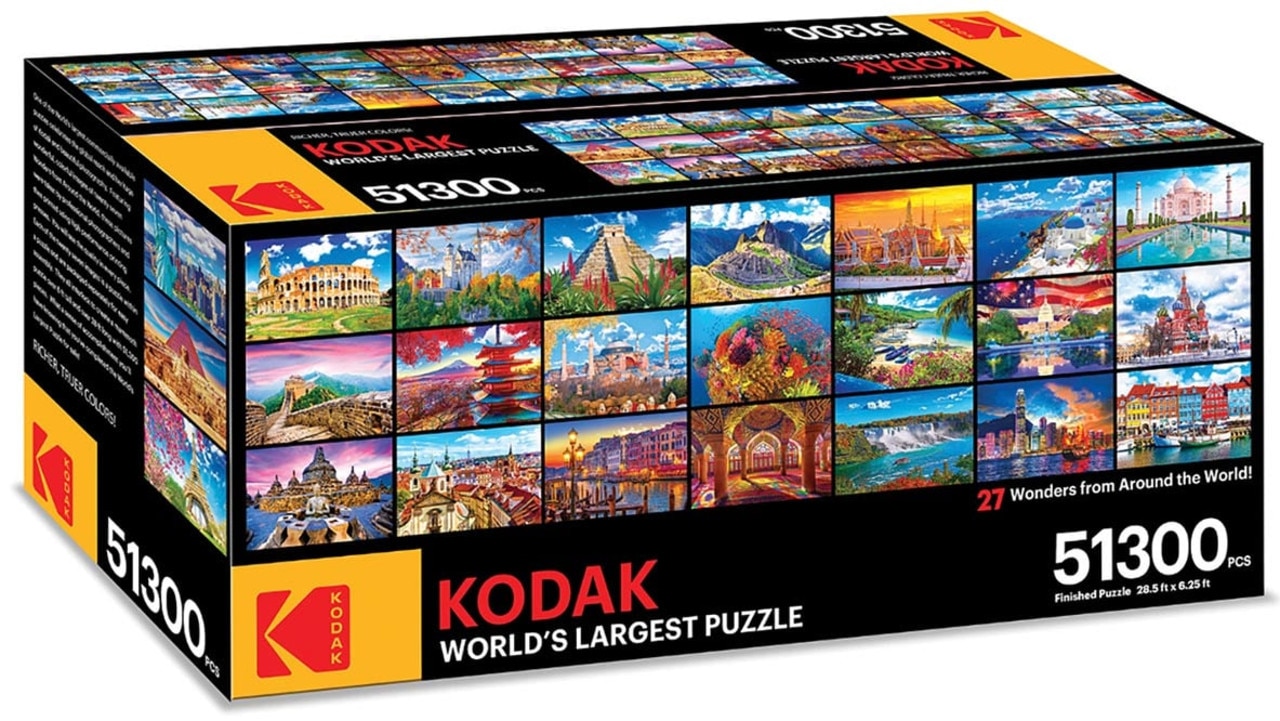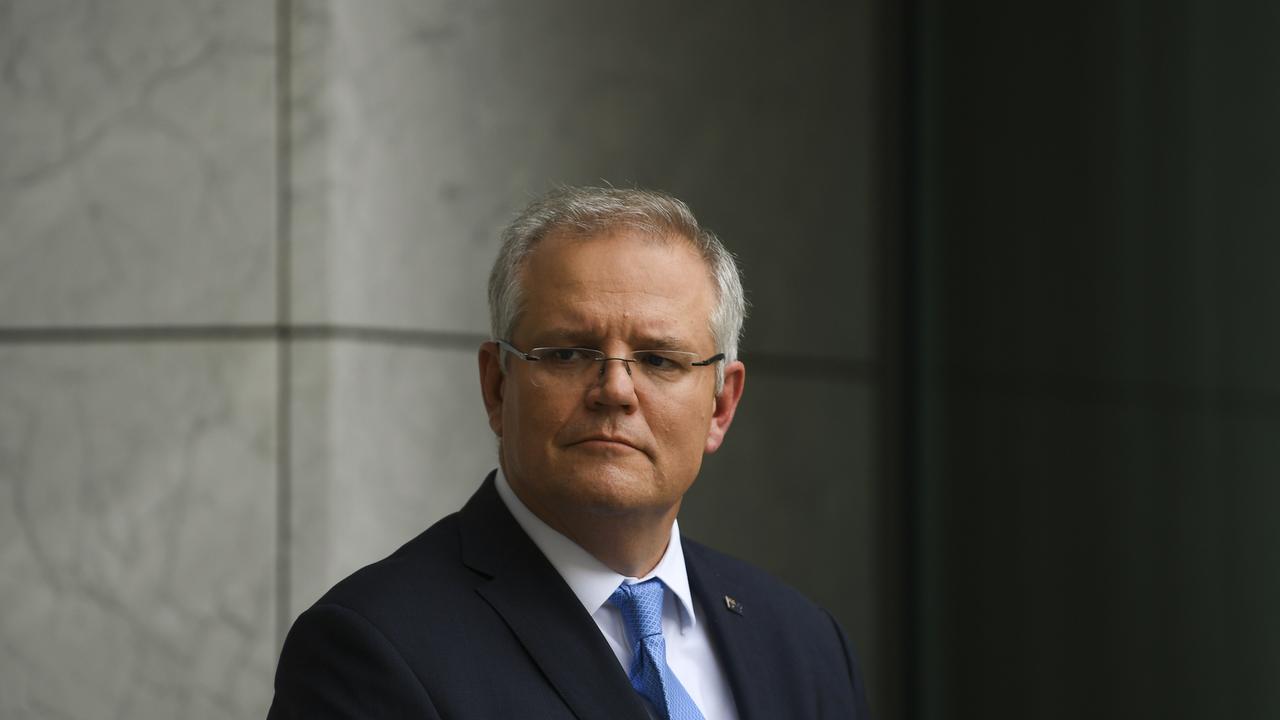Kodak invents world’s largest puzzle with more than 50,000 pieces
This jigsaw puzzle is so big that when completed it’s over 8 metres wide and almost 2 metres high. And the price will have you gasping.

American technology company Kodak has invented the world’s largest jigsaw puzzle, with a whopping 51,300 pieces.
The company reported that the jigsaw, once completed, would be 8.6 metres wide and just under 2 metres tall.
The 50,000 jigsaw pieces interlock to depict 27 wonders from around the globe.
RELATED: How to survive school holidays in lockdown
RELATED: Follow our live coronavirus updates here

Although it sounds like an impossible task, Kodak does make the puzzle a little easier to solve.
Each of the 27 destinations is split into exactly 1,900 pieces, all of which are packaged in separate bags.
Once completed, the puzzle is essentially a giant collage of sites like the Great Wall of China, Taj Mahal, and Eiffel Tower, all captured by professional photographers.
As to be expected, Kodak's "World's Largest Puzzle" costs a staggering $410, reduced from $440, from Amazon.
Other online retailers are charging upward of $600 for the record-breaking puzzle.
It’s not the first time a jigsaw puzzle has made headlines.
Last month jigsaw puzzles made national news after Scott Morrison’s bizarre comments outlining them as an “essential” service.

Prime Minister Scott Morrison had just announced Australia’s current stage 3 lockdown when he brought up jigsaw puzzles, advising Aussies to only leave the house “for what you need — food and essential supplies”.
When quizzed on what he meant, Mr Morrison replied: “I will give you an example. Our kids are at home now, as are most kids, and Jenny went out yesterday and bought them a whole bunch of jigsaw puzzles.
"I can assure you over the next few months we will consider those jigsaw puzzles absolutely essential.
"It is important that parents and families and households can get the things that they need to completely change the way they are going to live for the next six months at least, and so what we have done is sought to be practical about these issues.
"I mean, people are buying sporting equipment at the moment – gym mats and things like that – so they can exercise at home. These are things they are going to need."
While Mr Morrison was simply explaining what was considered an “essential supply”, choosing puzzles as an example, well, puzzled Australians.




